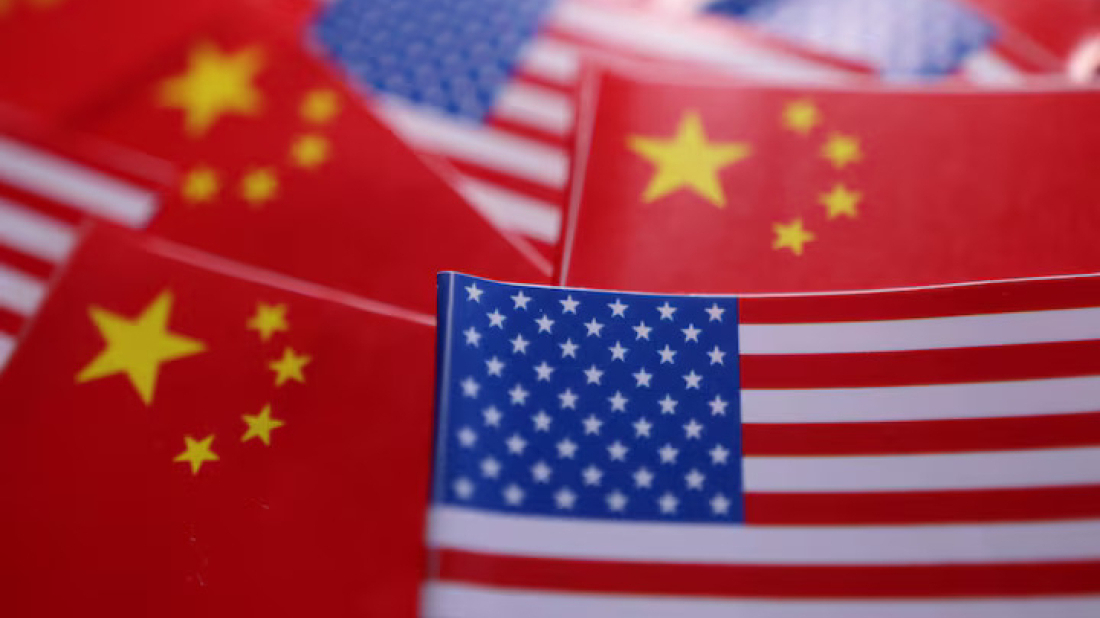'Ready to respond immediately,' Iran warns as U.S. naval buildup reaches region
Iran’s armed forces are prepared to “immediately and powerfully” respond to any U.S. attack, Foreign Minister Seyed Abbas Araghchi said, as Amer...

U.S. and Chinese officials entered a second day of high-level talks in Stockholm on Tuesday, aiming to ease longstanding economic tensions and avoid a renewed escalation of their trade war.
While a major breakthrough is not expected, both sides may agree to a 90-day extension of the tariff truce first agreed in May, potentially setting the stage for a future meeting between Presidents Donald Trump and Xi Jinping though Trump on Tuesday denied actively seeking one.
Talks resumed at Sweden’s Rosenbad, the prime minister’s office, where delegations met for more than five hours the previous day. U.S. Treasury Secretary Scott Bessent and Chinese Vice Premier He Lifeng were seen arriving at the venue on Tuesday, but neither side issued statements after Monday’s session.
The urgency is growing as China faces an 12 August deadline to finalise a deal with the U.S. before punitive tariffs, temporarily halted earlier this year snap back into place. A failure to reach an agreement could trigger triple-digit U.S. tariffs, severely disrupting global supply chains and trade.
These Stockholm talks come on the heels of Trump securing significant trade deals with the EU and Japan, including a 15% tariff pact with Brussels.
Meanwhile, the Financial Times reported that the U.S. has temporarily eased tech export controls on China to avoid derailing negotiations and to support Trump’s potential meeting with Xi.
Trump, however, pushed back on speculation, saying on Truth Social: “I am not SEEKING anything! I may go to China, but only at the invitation of President Xi, which has been extended. Otherwise, no interest!”
Complicating matters, U.S. lawmakers are preparing bipartisan legislation targeting China’s policies on Taiwan, human rights, and dissent issues likely to raise tensions during trade talks.
In response, Taiwan’s President Lai Ching-te is reportedly postponing a planned U.S. visit to avoid fuelling further friction.
Earlier U.S.-China talks in Geneva and London helped de-escalate retaliatory tariffs and address trade halts on key goods such as rare earth minerals and Artificial Intelligence (AI) chip exports. However, deeper structural disagreements remain. The U.S. accuses China of distorting global markets through its state-backed, export-heavy economic model, while China criticises Washington’s security-based restrictions on advanced technologies.
Treasury Secretary Bessent has previously supported extending the deadline and reiterated Washington’s long-standing position that Beijing should shift its economy toward greater domestic consumption.
Analysts caution that U.S. and China trade negotiations are far more complex than other regional deals, given China’s dominance in areas such as rare earths—critical components in defence systems and advanced manufacturing—making this dialogue a strategic and prolonged challenge.
The S&P 500 edged to a record closing high on Tuesday, marking its fifth consecutive day of gains, as strong advances in technology stocks offset a sharp selloff in healthcare shares and a mixed batch of corporate earnings.
Residents in Syria’s Kurdish-majority city of Qamishli have stepped up volunteer patrols amid growing pressure from the country’s Islamist-led government, expressing deep mistrust of Damascus despite a fragile U.S.-backed ceasefire.
Liverpool confirmed direct qualification to the UEFA Champions League round of 16 with a 6-0 win over Qarabağ at Anfield in their final league-phase match. Despite the setback, Qarabağ secured a play-off spot, with results elsewhere going in the Azerbaijani champions’ favour on the final matchday.
Iraq's former Prime Minister Nouri Al-Maliki said on Wednesday that he rejects U.S. interference in Iraq's internal affairs, after U.S. President Donald Trump threatened to cut off support to the country if Maliki was picked as prime minister.
Syrian President Ahmed al-Sharaa stressed to U.S. President Donald Trump in a phone call on Tuesday the importance of unifying international efforts to prevent the return of "terrorist groups", including Islamic State.
“For some weeks now, we have been seeing with increasing clarity the emergence of a world of great powers,” German Chancellor Friedrich Merz said on Thursday (29 January), declaring that Europe had found “self-respect” in standing up for a rules-based global order.
Colombian authorities on Wednesday (28 January) located a missing plane carrying 15 people in the northeast of the country, with no survivors found, an Air Force source and local media said.
Chinese authorities say they've carried out capital punishment against a group of individuals tied to notorious telecommunications fraud syndicates operating across the southern border, according to state news agency Xinhua.
Prime Minister Sanae Takaichi's Liberal Democratic Party is likely to increase its number of parliamentary seats and gain a majority in the lower house, a preliminary survey by the Nikkei newspaper showed on Thursday (29 January).
Start your day informed with AnewZ Morning Brief: here are the top news stories for the 29th of January, covering the latest developments you need to know.
You can download the AnewZ application from Play Store and the App Store.

What is your opinion on this topic?
Leave the first comment